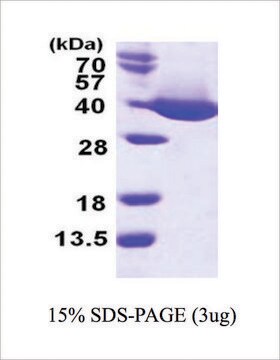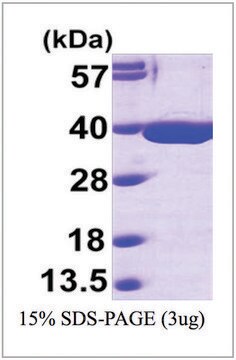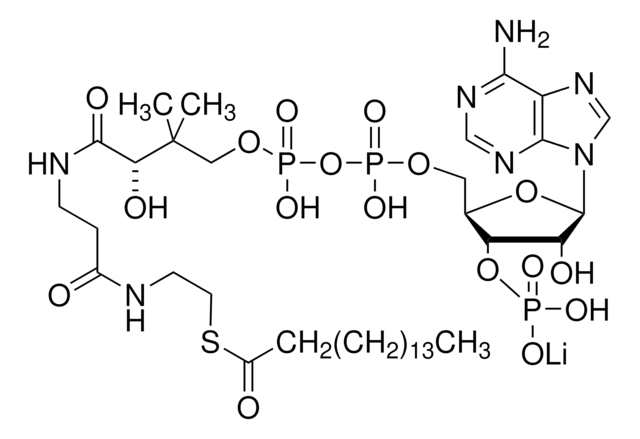SRP6103
MDH1 human
recombinant, expressed in E. coli, ≥95% (SDS-PAGE)
Synonyme(s) :
MDH-s, MDHA, MOR2, Malate dehydrogenase cytoplasmic
About This Item
Produits recommandés
Source biologique
human
Produit recombinant
expressed in E. coli
Pureté
≥95% (SDS-PAGE)
Forme
liquid
Poids mol.
37.4 kDa (342 aa, 1-334 aa + CT His Tag)
Conditionnement
pkg of 100 μg
Technique(s)
activity assay: suitable
Numéro d'accès NCBI
Conditions d'expédition
dry ice
Température de stockage
−70°C
Informations sur le gène
human ... MDH1(4190)
Description générale
Application
Actions biochimiques/physiologiques
Forme physique
Notes préparatoires
Autres remarques
Code de la classe de stockage
11 - Combustible Solids
Classe de danger pour l'eau (WGK)
WGK 3
Point d'éclair (°F)
Not applicable
Point d'éclair (°C)
Not applicable
Certificats d'analyse (COA)
Recherchez un Certificats d'analyse (COA) en saisissant le numéro de lot du produit. Les numéros de lot figurent sur l'étiquette du produit après les mots "Lot" ou "Batch".
Déjà en possession de ce produit ?
Retrouvez la documentation relative aux produits que vous avez récemment achetés dans la Bibliothèque de documents.
Notre équipe de scientifiques dispose d'une expérience dans tous les secteurs de la recherche, notamment en sciences de la vie, science des matériaux, synthèse chimique, chromatographie, analyse et dans de nombreux autres domaines..
Contacter notre Service technique





